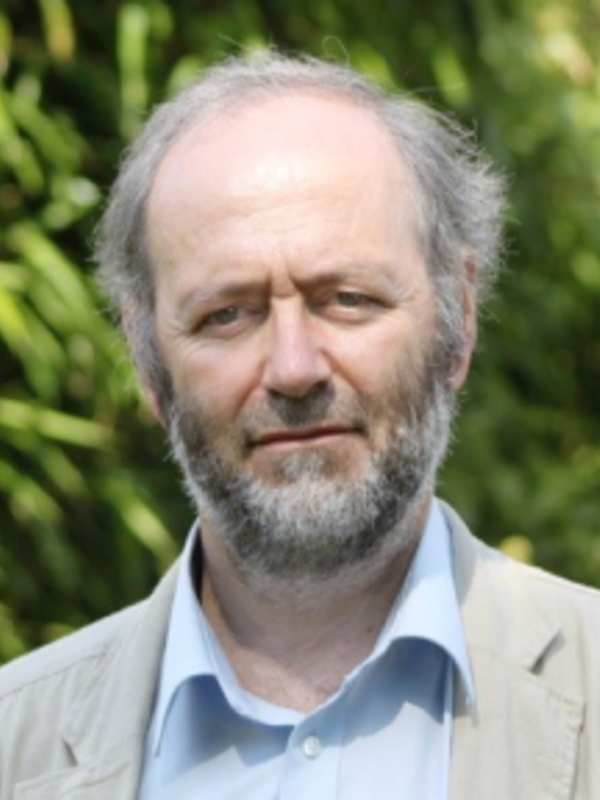Professor Simon Franklin
- Emeritus Professor of Slavonic Studies

Contact
About
Most of Simon Franklin’s research has been concerned with the history and culture of early Rus, and of Russia in the Early Modern period, though he has also published occasional studies of nineteenth- and twentieth-century Russian literature. In particular, he has focussed on aspects of the cultural significances of the written word across a broad spectrum of genres and forms and technologies: handwritten and printed, graffiti, inscribed objects, ephemera. Most recently he has been developing a holistic approach to the study of the ‘graphosphere’, the spaces of visible words.
Apart from teaching and research, he has served in numerous university and college roles, including periods as Head of the School of Arts and Humanities, as Senior Tutor of Clare College, and as a Trustee of the European University in St Petersburg, and of the Pushkin House Trust in London. In 2007 he was awarded the Lomonosov Gold Medal of the Russian Academy of Sciences, and he is a Fellow of the British Academy.
Research
Research interests:
- Early Rus
- The history of writing
- Technologies of the word
- Early Modern Russia
- history of Russian literature
Recent research projects:
Books in progress:
-A Cultural History of Russian (Reaktion Books)
-(with Iu. E. Shustova) Svodnyi katalog russkikh pechatnykh blankov, 1645-1762
Published works:
Principal publications
Books:
- [in press] (ed., with Rebecca Reich and Emma Widdis) The New Cambridge History of Russian Literature [Cambridge University Press, 2024]
- The Russian Graphosphere, 1450-1850 (Cambridge University Press, 2019)
- (ed., with Katherine Bowers) Information and Empire: Mechanisms of Communication in Russia, 1600-1850 (Cambridge: Open Book Publishers, 2017); free downloads at https://www.openbookpublishers.com/product/636%5d
- (ed., with Emma Widdis) National Identity in Russian Culture. An Introduction (Cambridge University Press, 2004)
- Byzantium – Rus – Russia: Studies in the Translation of Christian Culture (Aldershot: Ashgate, 2002)
- Writing, Society and Culture in Early Rus, 950-1300 (Cambridge University Press, 2002)
- (with Jonathan Shepard) The Emergence of Rus, 750-1200 (London: Longman, 1996)
- Sermons and Rhetoric of Kievan Rus’ (Cambridge, Mass., Harvard University Press, 1991)
Selected Recent Articles:
- [in press] chapters on "The Age of Devotion", "The Baroque Age", "Monasteries", and "Forms before Genres" in Franklin, Reich, Widdis (ed.) The New Cambridge History of Russian Literature (2024)
- [in press] "Incantations for Itinerants: the Rhetorical Formulae of Petrine Printed Passports", in Valhalla: Papers in Honor of Valerie Kivelson (Slavica Publishers, 2023)
- "K pragmatike i kommunikativnym funktsiiam maloizuchennogo vida dokumentov XVIII veka: Ukazy-blanki", in Ot sorochka k Olekse. Sbornik state k 60-lettiu A. A. Gippiusa (Moscow: "Delo", 2023), 488-502
- (with Iu. E. Shustova) "Pechatnye blanki Petrovskoi epokhi kak tekhnologicheskoe novatorstvo upravleniia gosudarstvom", in Knizhnaia kul'tura epokhi Petra I (Moscow: Pashkov dom, 2022), 247-265
- "East Slavonic", in Literary Beginnings in the European Middle Ages, ed. Mark Chinca and Christopher Young (Cambridge University Press, 2022), 276-298
- "Graphosphaera/Graphosphere/Graphoshpère/Grafosfera/Графосфера: WOrds, Concepts, Approaches", in Graphosphaera, 1 (2022), 9-19
- "Reading the Streets: Encounters with the Public Graphosphere, c. 1700-1950", in Reading Russia: a History of Reading in Modern Russia, ed. Damiano Rebecchini and Rafaella Vassena, vol.1 (Milan, 2021), 259-291
- ‘Three Types of Asymmetry in the Muscovite Engagement with Print’, Canadian-American Slavic Studies 51.2-3 (2017), 351-375
- ‘A Polyphony of Rules and Categories: the Case of Early Rus’, in Legalism: Rules and Categories, ed. Paul Dresch and Judith Scheele (Oxford University Press, 2015), 177-203
